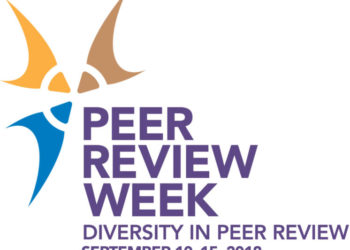Editor’s Note: Today’s post is by Alex Christopher. Alex is the Australian Publishers Association’s Communications Manager. The Association represents Scholarly & Journal, Tertiary & Professional, Schools & Education, Trade, Children’s and Independent Publishers across the country.
One would never expect that the idea of bringing together professionals connected to the peer review process for a robust confab was born from a conversation over pinot noir. However, it was that talk which led to this week’s Peer Review in Australia seminar. In a few days, Australia’s academic publishing ecosystem will converge to discuss the latest in local and global trends in Peer Review. In seminar format at the CSIRO Discovery Centre, the full day includes nine sessions with speakers from universities, academic research funding, publishing houses, and media platforms.
One session is dedicated to truth in a world of censorship, fake news, and alternative facts, chaired by Dr. Nathan Hollier from Melbourne University Press. Artificial Intelligence, Ethics, and Digital Technology and Peer Review will also be discussed. Led by the Scholarly and Journal Publishing Committee of the Australian Publishers Association, the one-day seminar kicks off with Publons’ Product lead, Tiago Barros.
Barros will deliver the keynote address: The Current State of Peer Review Globally. We spoke with Barros and also with event coordinator Andrew Stammer, ,CSIRO Publishing Director, on why this event is needed in Australia right now.

What sparked the idea to hold the Peer Review event for Australia?
Andrew Stammer (AS): Australians are a competitive lot when it comes to the world stage. We’re about 2% of the world’s economy, from which position it’s hard to be noticed, especially so if you are in a small industry like scholarly publishing, which is dominated by US and European companies. The Australian Publishers Association’s Scholarly and Journals Committee members, at heart, like to champion Australian research around the world, but we were feeling a buffeted by some of the more contentious, even acrimonious commentary focused on publishers in recent times.
We thought that stakeholders in the scholarly communication enterprise needed to engage in constructive dialogue. So we were looking for a way of bringing everyone together for a conversation that was interesting and valuable, but that was not fraught. We wanted to open a discussion in which we could showcase the good work that publishers do and demonstrate our willingness to explore how to do things even better.
Last year COPE, which promotes integrity in research, ran a seminar on ethical research practices at the Royal Melbourne Institute of Technology (RMIT) in Melbourne. It looked at the role of the various stakeholders in upholding proper practice in research. All the speakers, including the publishers talked about the contribution peer review makes to ensuring good research outcomes. But the discussion tended to delve into what happens when peer review goes wrong, or is not complete, or is inefficient. After the seminar a few of us were reflecting on the day and, with the facilitation provided by a particularly good pinot noir, we came up with the idea for this seminar.
Why is it important that all these people come together to talk about Peer Review right now?
AS: The scholarly enterprise involves many different players, all interdependent on each other. The community can be described in ecological terms – it’s an ecosystem. Everyone in the ecosystem benefits from good peer review. And everyone has a part to play. So it makes sense to involve everyone in the conversation.
If we understand what each needs from peer review and what each can contribute we create the potential to make the system better. As to the ‘right now’ – the research enterprise spends billions of dollars of public money. There are constant demands on that money. A dollar spent on research cannot be also spent on education, health, national security, support for business, support for the poor, or protecting the environment. If the ecosystem wants to maintain public trust in how it delivers value for those funds, then we are all obliged to be as efficient and effective as we can in delivering excellent outputs of excellent research. Especially in these times of fake news and alternative facts.
What is the power of peer review and why is it important we talk about it as a collective?
Tiago Barros (TB): Peer Review is the gold standard for ensuring the quality and integrity of research. Researchers spend significant amounts of their time and use their expertise to peer review, not only for publishers but also for funders, conferences, and institutions. Peer reviewers are keeping watch over the quality of the published research and help funders make the right funding decisions — both critical aspects of science. It’s important that those organizations — publishers, funders, institutions, as well as fellow researchers and the wider community — celebrate this often hidden work. Professionals in the peer review ecosystem, are often unrecognized and the seminar presents a time to celebrate the efforts of all who are a part of the process.
Tiago, what will you be speaking about in your keynote?
TB: I am thrilled to have the opportunity to present an update on the Global State of Peer Review report that Publons published last year and has been so well received. The report includes the results from the largest survey ever conducted on peer review (we received over 12K replies to the survey). It gave us a unique perspective on the current challenges and opportunities that peer review is facing across the world.”
The Peer Review Seminar will be held on 12 September 2019, 9:00 – 4:30 PM at the CSIRO Discovery Centre Lecture Theatre in Canberra, Australia.
Discussion
2 Thoughts on "Guest Post — Pinot Noir, Australia, and Peer Review"
Sorry to read no mention of the important trend to postpublication review which with the demise of Pub Med Commons is valuable in that it opens up and makes possible a wider critique of papers
Although we regularly have a few commenters that bemoan the decision to shut down PubMed Commons due to lack of activity, it should be noted that there are many other tools and websites available for post-publication commenting, and as argued in this post, these are going to see limited uptake at best:
https://scholarlykitchen.sspnet.org/2019/08/15/two-new-initiatives-at-elife-to-start-the-eisen-era/


